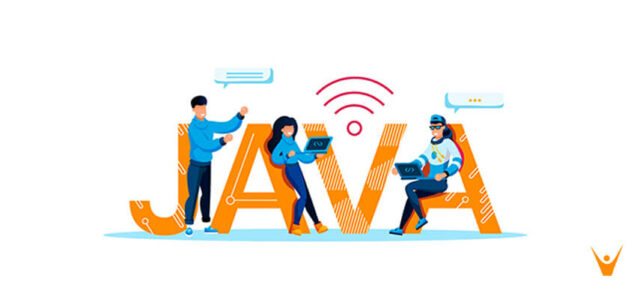Are you an aspiring programmer looking to start your coding journey? Choosing the right programming language can make all the difference in your learning experience and future career prospects. Among the numerous options available, Java stands out as the best language for beginner programmers. Let’s explore the reasons why.
- Java uses a syntax that closely resembles English, making it easier for new programmers to understand and write code. The language follows a clear and logical structure with well-defined rules and conventions. Java also has a gradual learning curve. It allows beginners to start with the basics and progressively move towards more advanced concepts. The language provides a solid foundation in object-oriented programming (OOP) principles, which are essential for building scalable and maintainable software.
- Java comes with a vast standard library that provides a wide range of built-in functions and classes. This means beginners don’t have to start from scratch when developing applications. The standard library covers various aspects of programming, including input/output, data structures, networking, and more. Moreover, Java has an extensive collection of online resources, tutorials, and communities that support beginner programmers. Websites like Oracle’s Java Tutorials, Codecademy, and Stack Overflow offer comprehensive guides, interactive lessons, and forums where beginners can learn and seek help from experienced developers.
- Java’s “write once, run anywhere” principle makes it highly versatile. Java code can run on any platform that supports the Java Virtual Machine (JVM) without the need for recompilation. This platform independence allows beginners to focus on learning the language itself rather than worrying about platform-specific issues. Java’s versatility extends to its wide range of applications. It is used in various domains, including web development, mobile app development, enterprise software, scientific computing, and more. This versatility provides beginners with a broad range of career opportunities and the ability to apply their Java skills across different industries.
- OOP is a fundamental paradigm in modern programming, and Java provides a clear and structured approach to learning OOP concepts. By learning Java, beginners gain a solid understanding of essential OOP principles like encapsulation, inheritance, and polymorphism. These concepts are crucial for writing modular, reusable, and maintainable code. Once mastered, these OOP skills can be applied to other object-oriented languages as well.
- Developers actively use Java community. This community contributes to the language’s growth, provides support, and shares knowledge through forums, conferences, and open-source projects. Beginner programmers can tap into this community to learn from experienced developers, collaborate on projects, and stay updated with the latest trends and best practices. Furthermore, Java has a strong industry demand. Many organisations, from startups to large enterprises, rely on Java for their software development needs. This demand translates into abundant job opportunities for Java developers, making it a valuable skill for beginner programmers to acquire.
Java’s combination support makes it the best language for beginner programmers. By starting with
java projects, beginners can lay a solid foundation in programming concepts for career opportunities. Learning to program is a journey, and Java provides a beginner-friendly path to embark on that journey. With dedication, beginner programmers unlock their coding potential and build a successful career in software development.

